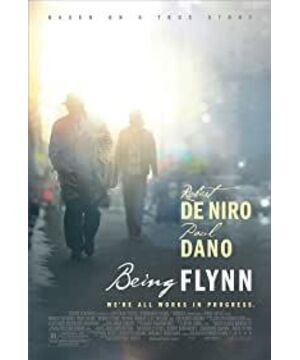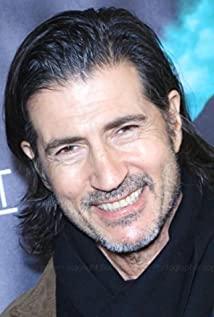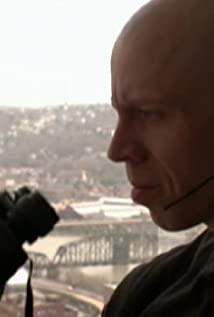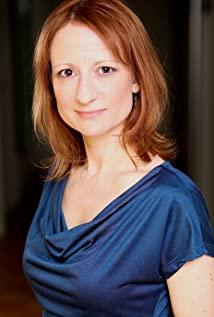However, just describing this movie as "good-looking!" seems to be a little sorry for the film workers in front and behind the scenes, so I will be more forceful and say that this is a film with excellent writing, directing and acting.
The screenwriter and director of the film is Paul Weitz. The story is adapted from the real story of contemporary American writer Nick Flynn, and also refers to his novels, and Nick Flynn is the protagonist of the film.
The story tells that the protagonist Nick's parents were divorced when he was young. He lived with his mother, and his impression of his biological father only remained in the more than 100 letters his father wrote to him in prison. However, after being separated for 18 years, the two father and son met again by chance, and began a relationship that became worse and worse.
Don't think it's an old-fashioned story and find it unappealing. Because the environment where the two get along is in a home for the homeless, the son is a staff member, and the father is a roommate, adding a dramatic element to this old-fashioned father-son story.
In particular, this father often brags about how majestic he is, doesn't like anything, and is noisy every minute and every second like a mania. You can imagine how many embarrassing scenes the father has brought to his son. The relationship between the two is How bad.
The son himself already had a bad impression of his father, and the relationship between them accelerated and deteriorated when they got along.
The way the movie is done is amazing.
In order to meet the aspirations of both father and son to become writers, they started with an autobiographical opening remark to bring out their respective experiences. After that, the memories of Nick and his mother (Julianne Moore) were constantly intersected, from light to heavy, and gradually painted his background for the audience, allowing the audience to understand the source of his hatred for his father.
From the beginning, it tells the story of a bitter and mean old man, and the story of how a young man who has not yet found his purpose in life finds his ideal. Two people who live on two lines of balance have nothing to do with each other, but when these two parallel lines meet, the tipping point is imminent. Because the audience already knows Nick's background so well, it all makes sense.
Also, one of the scenes that really struck me was how Nick got his father figure from a boyfriend whose mother was like a wheel. The way the scene was presented was very unique, and it made me very happy. I won't go into details here, I'll leave it to you who are interested in entering the venue to pay attention.
There's no denying that Nick's father is an abomination, a god of plague. But he is not an ordinary person, not a person who can be ignored, but his biological father.
I think this father-son relationship is very unique.
It says that Nick wants to work hard to stop himself from following in his father's footsteps. The more he tried to get rid of his father's shadow, the more he hoped that he would not be like his father, but the more and more he became like this muddy father.
Nick's father therefore plausibly said: Because I made you, of course you are like me, because I made you, of course you inherited my writing talent!
Faced with such a father, what can a son do? Face? Thinking about it can understand Nick's helplessness.
From the perspective of this father-son relationship, the English name Being Flynn is indeed named quite well.
Being Flynn, the son of Flynn, has a mixture of hatred and sympathy for his father. His bad attitude is hateful, but he is homeless and the wind is piercing outside. Seeing him shrinking in the street and still stubborn, his heart has turned from hatred to pity for him, but he is really suffering.
The director has a lot of ink in this father-son relationship, and the actor's performance is superb, and the role is quite three-dimensional.
Paul Dano of course played Nick alive, but the performance was completely overshadowed by Robert de Niro's style.
Robert de Niro would be the perfect man to play the manic father. He acts like a continuation of the character from "Taxi Driver," as cynical and as hateful of everyone in society. Although the old horse is hot, but he is already an old man, what can he do? So the only way to vent all his dissatisfaction on everyone around him is to make himself annoying and give up on himself.
When I saw such a character, I suddenly wondered what is the reason for a person to become like this?
I believe it is because this person has a high self-esteem but has been depressed for a long time. However, the accomplices are those who do not know how to appreciate themselves.
In the play, Nick's mother has never played against her father, but every time she appears, she almost always mentions Nick's father, and she looks down on him, and she doesn't say anything to talk about.
She doesn't have much of a scene, but it's enough to remind me that the love between her and Nick's father turned into hatred, hatred, and hatred.
If she in turn held her unwavering confidence and appreciation for him, everything might have changed. And the change of the director's attitude towards his father from Nick at the end also confirmed my idea.
It is said that sadness is written with joy, and sadness is even more sad. Although this play is not a comedy type, the tone of the movie goes from humorous at the beginning, to the social phenomenon and sadness of a homeless person in the middle part, and then leads the audience to the sadness of the latter part. Nick's father, as disgusting as he was, was still sad to see him sink.
On the whole, this play can make those who have no relationship with their father feel the same way, and it makes people think that even if his father is not, he is still his own father.
We often ask for a father that we can be proud of. However, ask ourselves, do we have children that he can be proud of? This movie does not give us the answer, the answer is actually in our hearts.
Qi Jashi
View more about Being Flynn reviews











